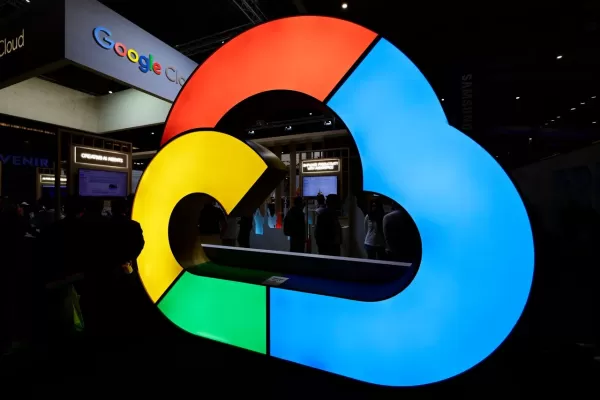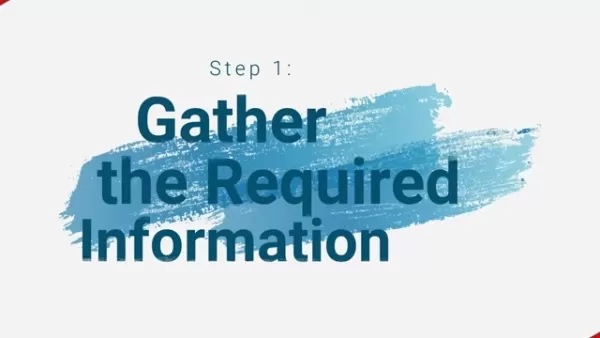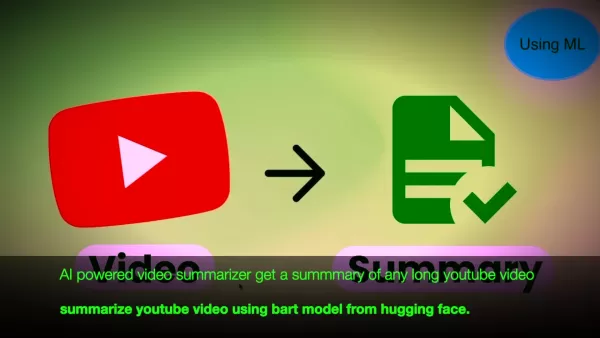Google reveals new Kubernetes and GKE enhancements for AI innovation

Google's push into AI is no secret, and with good reason. As CEO Sundar Pichai emphasized in an internal meeting before last year's holidays, "In 2025, we need to be relentlessly focused on unlocking the benefits of [AI] technology and solving real user problems." This vision is driving Google to enhance its offerings significantly, especially in cloud services and AI integration.
At the Google Cloud Next 2025 event in Las Vegas, Google unveiled substantial advancements in Kubernetes and Google Kubernetes Engine (GKE). These updates aim to empower platform teams and developers to harness AI while leveraging their existing Kubernetes expertise. Gabe Monroy, Google's VP of Cloud Runtimes, put it succinctly: "Your Kubernetes skills and investments aren't just relevant; they're your AI superpower."
So, what exactly are these new advancements? Let's dive into the details.
Simplified AI Cluster Management: GKE is introducing simplified AI cluster management through tools like Cluster Director for GKE, previously known as Hypercompute Cluster. This tool allows users to deploy and manage large clusters of virtual machines (VMs) with attached Nvidia GPUs, making it easier to scale AI workloads efficiently.
A related upcoming service is Cluster Director for Slurm. Slurm, an open-source job scheduler and workload manager for Linux, will be easier to provision and operate thanks to Google's simplified UI and APIs. These will include blueprints for typical workloads with pre-configured software, ensuring reliable and repeatable deployments.
Optimized AI Model Deployment: GKE's new features also focus on optimizing AI model deployment. The GKE Inference Quickstart and GKE Inference Gateway simplify the selection and deployment of AI models, ensuring they perform well with intelligent load balancing.
Gabe Monroy highlighted the trend of AI innovation intersecting with traditional computing, particularly in the realm of inference. He noted, "We are seeing a clear trend in the age of AI: amazing innovation is happening where traditional compute interacts with neural networks -- otherwise known as 'inference.' Companies operating at the cutting edge of Kubernetes and AI, like LiveX and Moloco, run AI inference on GKE."
Cost-Effective Inference: GKE is making strides in cost-effective inference with the Inference Gateway. Monroy claims this approach can reduce serving costs by up to 30%, cut latency by up to 60%, and increase throughput by 40% compared to other managed and open-source Kubernetes offerings. While these are promising figures, we'll need to see them in action to confirm their impact.
Model-aware load balancing is a key component of this strategy. Given the variable response lengths in AI models, traditional load-balancing methods like round-robin can be inefficient. The Inference Gateway, however, offers a model-aware gateway optimized for AI, with advanced routing to different model versions.
Improved Resource Efficiency: GKE is also focusing on improving resource efficiency. The GKE Autopilot now offers faster pod scheduling, quicker scaling reaction times, and better capacity right-sizing. This means users can handle more traffic with the same resources or maintain existing traffic with fewer resources. Google claims that with the improved Autopilot, cluster capacity will always be right-sized.
Currently, Autopilot includes a best-practice cluster configuration tool and a container-optimized compute platform that automatically adjusts capacity to match workloads. However, it doesn't right-size existing clusters without a specific configuration. Starting in the third quarter, Autopilot's container-optimized compute platform will also be available to standard GKE clusters without needing a specific configuration, which could be a game-changer.
AI-enabled Gemini Cloud Assist: Debugging and diagnosing application issues can significantly slow down innovation. To address this, Google introduced Gemini Cloud Assist, offering AI-powered assistance throughout the application lifecycle. The private preview of Gemini Cloud Assist Investigations helps users quickly understand root causes and resolve issues.
The best part? Assist Investigations will be accessible directly from the GKE console, reducing troubleshooting time and freeing up more time for innovation. It will allow you to diagnose pod and cluster issues from the GKE console across various Google Cloud services, including nodes, IAM, and load balancers. You can view logs and errors across multiple GKE services, controllers, pods, and underlying nodes. Sign up for the private preview to experience this feature firsthand.
As part of its broader emerging technology strategy, Google is positioning itself as a leader in AI-optimized platforms. These developments enable businesses across industries to use AI more effectively, driving innovation and efficiency in operations and customer experiences.
For instance, Intuit leverages Google Cloud's Document AI and Gemini to simplify tax preparation for millions of TurboTax users. Reddit uses Gemini via Vertex AI, Google's AI agent builder, to enhance Reddit Answers, a new AI-powered conversation platform designed to improve the homepage experience.
Can Google successfully execute these AI-enabled transformations? Only time will tell. As Pichai stated in December, "In history, you don't always need to be first, but you have to execute well and really be the best in class as a product. I think that's what 2025 is all about."
Related article
 AI-Powered Cover Letters: Expert Guide for Journal Submissions
In today's competitive academic publishing environment, crafting an effective cover letter can make the crucial difference in your manuscript's acceptance. Discover how AI-powered tools like ChatGPT can streamline this essential task, helping you cre
AI-Powered Cover Letters: Expert Guide for Journal Submissions
In today's competitive academic publishing environment, crafting an effective cover letter can make the crucial difference in your manuscript's acceptance. Discover how AI-powered tools like ChatGPT can streamline this essential task, helping you cre
 US to Sanction Foreign Officials Over Social Media Regulations
US Takes Stand Against Global Digital Content Regulations
The State Department issued a sharp diplomatic rebuke this week targeting European digital governance policies, signaling escalating tensions over control of online platforms. Secretary Marco
US to Sanction Foreign Officials Over Social Media Regulations
US Takes Stand Against Global Digital Content Regulations
The State Department issued a sharp diplomatic rebuke this week targeting European digital governance policies, signaling escalating tensions over control of online platforms. Secretary Marco
 Ultimate Guide to AI-Powered YouTube Video Summarizers
In our information-rich digital landscape, AI-powered YouTube video summarizers have become indispensable for efficient content consumption. This in-depth guide explores how to build a sophisticated summarization tool using cutting-edge NLP technolog
Comments (47)
0/200
Ultimate Guide to AI-Powered YouTube Video Summarizers
In our information-rich digital landscape, AI-powered YouTube video summarizers have become indispensable for efficient content consumption. This in-depth guide explores how to build a sophisticated summarization tool using cutting-edge NLP technolog
Comments (47)
0/200
![MatthewScott]() MatthewScott
MatthewScott
 October 1, 2025 at 4:30:35 PM EDT
October 1, 2025 at 4:30:35 PM EDT
Interesante ver cómo Google sigue integrando Kubernetes con IA 🚀. Pero me pregunto, ¿estas mejoras realmente simplificarán la vida de los desarrolladores o solo añadirán más complejidad? Ojalá incluyan buenos tutoriales para principiantes.


 0
0
![JohnGarcia]() JohnGarcia
JohnGarcia
 September 14, 2025 at 4:30:38 PM EDT
September 14, 2025 at 4:30:38 PM EDT
Los avances de Google en Kubernetes y GKE para IA suenan prometedores, pero ¿realmente simplificarán el trabajo de los desarrolladores o solo agregarán más capas de complejidad? 🤔 A veces siento que estas actualizaciones son más para el marketing que para solucionar problemas reales.


 0
0
![JasonHarris]() JasonHarris
JasonHarris
 April 22, 2025 at 5:46:09 AM EDT
April 22, 2025 at 5:46:09 AM EDT
Google's Kubernetes and GKE updates for AI are pretty cool! They're really stepping up their game in AI innovation. It's awesome to see them focusing on solving real user problems. Can't wait to see what they come up with next! 🚀


 0
0
![RaymondRodriguez]() RaymondRodriguez
RaymondRodriguez
 April 22, 2025 at 12:59:07 AM EDT
April 22, 2025 at 12:59:07 AM EDT
Las actualizaciones de Google para Kubernetes y GKE enfocadas en IA son bastante geniales. Realmente están subiendo el nivel en la innovación de IA. Es genial verlos enfocados en resolver problemas reales de los usuarios. ¡No puedo esperar a ver qué vendrá después! 🚀


 0
0
![HarryLewis]() HarryLewis
HarryLewis
 April 20, 2025 at 10:25:32 PM EDT
April 20, 2025 at 10:25:32 PM EDT
구글의 쿠버네티스와 GKE의 AI 관련 업데이트 정말 멋지네요! AI 혁신에 정말 열심히 하고 있는 것 같아요. 사용자의 문제를 해결하는 데 집중하는 것도 훌륭해요. 다음에 어떤 것이 나올지 기대돼요! 🚀


 0
0
![StevenNelson]() StevenNelson
StevenNelson
 April 20, 2025 at 3:39:43 AM EDT
April 20, 2025 at 3:39:43 AM EDT
GoogleのKubernetesとGKEの強化はAIイノベーションにはすごいけど、ちょっと難しすぎるかな。😅 ユーザーの問題を解決しようとする努力は評価するけど、もっとユーザーフレンドリーな説明が欲しいな。でも、AIとテクノロジーに興味があるなら、チェックする価値はあるよ!👀


 0
0

Google's push into AI is no secret, and with good reason. As CEO Sundar Pichai emphasized in an internal meeting before last year's holidays, "In 2025, we need to be relentlessly focused on unlocking the benefits of [AI] technology and solving real user problems." This vision is driving Google to enhance its offerings significantly, especially in cloud services and AI integration.
At the Google Cloud Next 2025 event in Las Vegas, Google unveiled substantial advancements in Kubernetes and Google Kubernetes Engine (GKE). These updates aim to empower platform teams and developers to harness AI while leveraging their existing Kubernetes expertise. Gabe Monroy, Google's VP of Cloud Runtimes, put it succinctly: "Your Kubernetes skills and investments aren't just relevant; they're your AI superpower."
So, what exactly are these new advancements? Let's dive into the details.
Simplified AI Cluster Management: GKE is introducing simplified AI cluster management through tools like Cluster Director for GKE, previously known as Hypercompute Cluster. This tool allows users to deploy and manage large clusters of virtual machines (VMs) with attached Nvidia GPUs, making it easier to scale AI workloads efficiently.
A related upcoming service is Cluster Director for Slurm. Slurm, an open-source job scheduler and workload manager for Linux, will be easier to provision and operate thanks to Google's simplified UI and APIs. These will include blueprints for typical workloads with pre-configured software, ensuring reliable and repeatable deployments.
Optimized AI Model Deployment: GKE's new features also focus on optimizing AI model deployment. The GKE Inference Quickstart and GKE Inference Gateway simplify the selection and deployment of AI models, ensuring they perform well with intelligent load balancing.
Gabe Monroy highlighted the trend of AI innovation intersecting with traditional computing, particularly in the realm of inference. He noted, "We are seeing a clear trend in the age of AI: amazing innovation is happening where traditional compute interacts with neural networks -- otherwise known as 'inference.' Companies operating at the cutting edge of Kubernetes and AI, like LiveX and Moloco, run AI inference on GKE."
Cost-Effective Inference: GKE is making strides in cost-effective inference with the Inference Gateway. Monroy claims this approach can reduce serving costs by up to 30%, cut latency by up to 60%, and increase throughput by 40% compared to other managed and open-source Kubernetes offerings. While these are promising figures, we'll need to see them in action to confirm their impact.
Model-aware load balancing is a key component of this strategy. Given the variable response lengths in AI models, traditional load-balancing methods like round-robin can be inefficient. The Inference Gateway, however, offers a model-aware gateway optimized for AI, with advanced routing to different model versions.
Improved Resource Efficiency: GKE is also focusing on improving resource efficiency. The GKE Autopilot now offers faster pod scheduling, quicker scaling reaction times, and better capacity right-sizing. This means users can handle more traffic with the same resources or maintain existing traffic with fewer resources. Google claims that with the improved Autopilot, cluster capacity will always be right-sized.
Currently, Autopilot includes a best-practice cluster configuration tool and a container-optimized compute platform that automatically adjusts capacity to match workloads. However, it doesn't right-size existing clusters without a specific configuration. Starting in the third quarter, Autopilot's container-optimized compute platform will also be available to standard GKE clusters without needing a specific configuration, which could be a game-changer.
AI-enabled Gemini Cloud Assist: Debugging and diagnosing application issues can significantly slow down innovation. To address this, Google introduced Gemini Cloud Assist, offering AI-powered assistance throughout the application lifecycle. The private preview of Gemini Cloud Assist Investigations helps users quickly understand root causes and resolve issues.
The best part? Assist Investigations will be accessible directly from the GKE console, reducing troubleshooting time and freeing up more time for innovation. It will allow you to diagnose pod and cluster issues from the GKE console across various Google Cloud services, including nodes, IAM, and load balancers. You can view logs and errors across multiple GKE services, controllers, pods, and underlying nodes. Sign up for the private preview to experience this feature firsthand.
As part of its broader emerging technology strategy, Google is positioning itself as a leader in AI-optimized platforms. These developments enable businesses across industries to use AI more effectively, driving innovation and efficiency in operations and customer experiences.
For instance, Intuit leverages Google Cloud's Document AI and Gemini to simplify tax preparation for millions of TurboTax users. Reddit uses Gemini via Vertex AI, Google's AI agent builder, to enhance Reddit Answers, a new AI-powered conversation platform designed to improve the homepage experience.
Can Google successfully execute these AI-enabled transformations? Only time will tell. As Pichai stated in December, "In history, you don't always need to be first, but you have to execute well and really be the best in class as a product. I think that's what 2025 is all about."
 AI-Powered Cover Letters: Expert Guide for Journal Submissions
In today's competitive academic publishing environment, crafting an effective cover letter can make the crucial difference in your manuscript's acceptance. Discover how AI-powered tools like ChatGPT can streamline this essential task, helping you cre
AI-Powered Cover Letters: Expert Guide for Journal Submissions
In today's competitive academic publishing environment, crafting an effective cover letter can make the crucial difference in your manuscript's acceptance. Discover how AI-powered tools like ChatGPT can streamline this essential task, helping you cre
 US to Sanction Foreign Officials Over Social Media Regulations
US Takes Stand Against Global Digital Content Regulations
The State Department issued a sharp diplomatic rebuke this week targeting European digital governance policies, signaling escalating tensions over control of online platforms. Secretary Marco
US to Sanction Foreign Officials Over Social Media Regulations
US Takes Stand Against Global Digital Content Regulations
The State Department issued a sharp diplomatic rebuke this week targeting European digital governance policies, signaling escalating tensions over control of online platforms. Secretary Marco
 Ultimate Guide to AI-Powered YouTube Video Summarizers
In our information-rich digital landscape, AI-powered YouTube video summarizers have become indispensable for efficient content consumption. This in-depth guide explores how to build a sophisticated summarization tool using cutting-edge NLP technolog
Ultimate Guide to AI-Powered YouTube Video Summarizers
In our information-rich digital landscape, AI-powered YouTube video summarizers have become indispensable for efficient content consumption. This in-depth guide explores how to build a sophisticated summarization tool using cutting-edge NLP technolog
 October 1, 2025 at 4:30:35 PM EDT
October 1, 2025 at 4:30:35 PM EDT
Interesante ver cómo Google sigue integrando Kubernetes con IA 🚀. Pero me pregunto, ¿estas mejoras realmente simplificarán la vida de los desarrolladores o solo añadirán más complejidad? Ojalá incluyan buenos tutoriales para principiantes.


 0
0
 September 14, 2025 at 4:30:38 PM EDT
September 14, 2025 at 4:30:38 PM EDT
Los avances de Google en Kubernetes y GKE para IA suenan prometedores, pero ¿realmente simplificarán el trabajo de los desarrolladores o solo agregarán más capas de complejidad? 🤔 A veces siento que estas actualizaciones son más para el marketing que para solucionar problemas reales.


 0
0
 April 22, 2025 at 5:46:09 AM EDT
April 22, 2025 at 5:46:09 AM EDT
Google's Kubernetes and GKE updates for AI are pretty cool! They're really stepping up their game in AI innovation. It's awesome to see them focusing on solving real user problems. Can't wait to see what they come up with next! 🚀


 0
0
 April 22, 2025 at 12:59:07 AM EDT
April 22, 2025 at 12:59:07 AM EDT
Las actualizaciones de Google para Kubernetes y GKE enfocadas en IA son bastante geniales. Realmente están subiendo el nivel en la innovación de IA. Es genial verlos enfocados en resolver problemas reales de los usuarios. ¡No puedo esperar a ver qué vendrá después! 🚀


 0
0
 April 20, 2025 at 10:25:32 PM EDT
April 20, 2025 at 10:25:32 PM EDT
구글의 쿠버네티스와 GKE의 AI 관련 업데이트 정말 멋지네요! AI 혁신에 정말 열심히 하고 있는 것 같아요. 사용자의 문제를 해결하는 데 집중하는 것도 훌륭해요. 다음에 어떤 것이 나올지 기대돼요! 🚀


 0
0
 April 20, 2025 at 3:39:43 AM EDT
April 20, 2025 at 3:39:43 AM EDT
GoogleのKubernetesとGKEの強化はAIイノベーションにはすごいけど、ちょっと難しすぎるかな。😅 ユーザーの問題を解決しようとする努力は評価するけど、もっとユーザーフレンドリーな説明が欲しいな。でも、AIとテクノロジーに興味があるなら、チェックする価値はあるよ!👀


 0
0





























